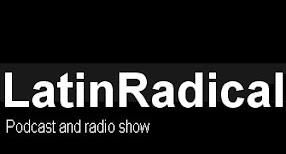
Nimbin Community Radio 2NimFM caught this exclusive interview with Mari Alkatiri when he was in Australia to talk about his vision for Timor Leste as a potential bridge for Asian, Pacific, and Western cultures. Timor Leste is unusually well placed for this role historically, culturally, and linguisticly, having kept its' unique identity through successive waves of colonisation by the Portugese, invasion by the Japanese in WWII, and occupation by the Indonesians in 1970s and 1990s.
Here is the first four minutes of his well received presentation at the Australian National University. Following is an exclusive ten minute interview with community radio 2NimFM just before Mari Alkatiri's meeting with Australian Prime Minister Kevin Rudd. Mari fields questions about the need for justice for the people of Timor Leste, the controversial Peace March, now deferred because of the threats of repression from the current Prime Minister, and a broad outline of how the Fretilin Party (of which he is the General Secretary) is organised. Fretilin ranks are open to the younger generation, which is strongly represented in the party organisation.
Finally, Mari briefly comments on his own role in the Fretilin party.
Here is the first four minutes of his well received presentation at the Australian National University. Following is an exclusive ten minute interview with community radio 2NimFM just before Mari Alkatiri's meeting with Australian Prime Minister Kevin Rudd. Mari fields questions about the need for justice for the people of Timor Leste, the controversial Peace March, now deferred because of the threats of repression from the current Prime Minister, and a broad outline of how the Fretilin Party (of which he is the General Secretary) is organised. Fretilin ranks are open to the younger generation, which is strongly represented in the party organisation.
Finally, Mari briefly comments on his own role in the Fretilin party.















